The Ultimate Guide to Sustainable Gardening

Sustainable gardening is an eco-friendly approach to growing plants that benefits both your garden and the environment. By reducing waste, conserving water, and using natural resources responsibly, sustainable gardening helps lower your household’s carbon footprint. Whether you have a sprawling space or a small garden, sustainable gardening empowers you to create a thriving ecosystem while still protecting the planet.
The 3 Core Principles of Sustainable Gardening
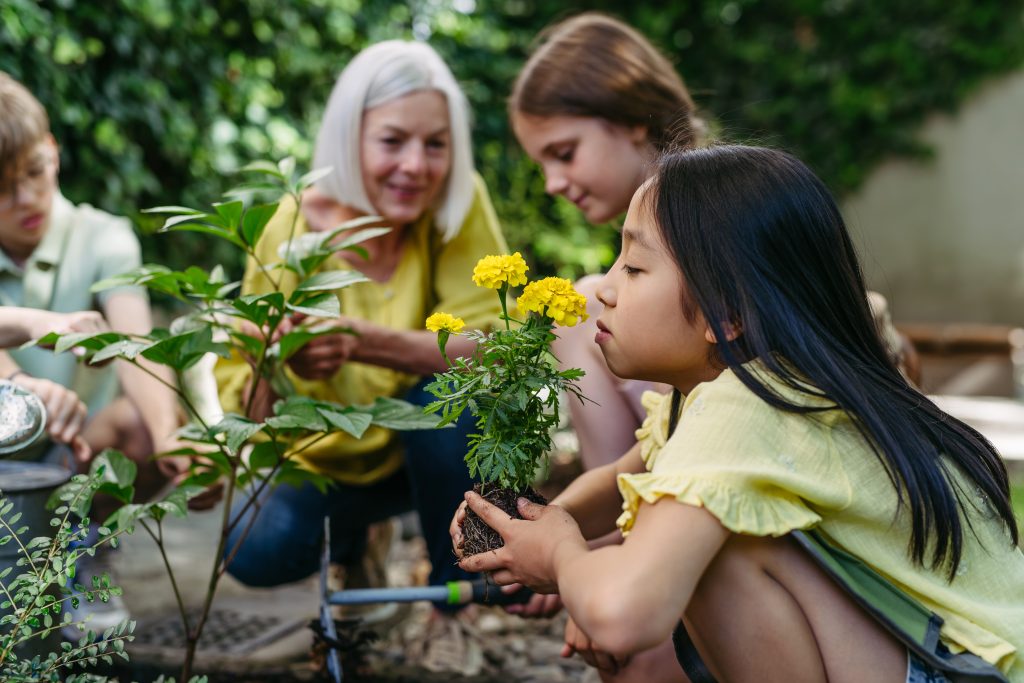
Most popular gardening practices rely on chemicals, excessive water use, and unsustainable materials. Greener gardening practices support local ecosystems, encourage pollinators, and reduce the need for harmful pesticides.
A few simple changes in your gardening practices can have a big impact, whether you’re working with a large plot or a compact space.
- Compost Bins: Rather than sending food scraps and garden waste to landfill, turning them into compost creates nutrient-rich soil for your plants.
- Water Conservation: Drought-tolerant plants require less water and are better suited to the changing climate, making them ideal for reducing water consumption. To further save water, install a water butt to collect rainwater, which can then be used to hydrate your garden.
- Mulching: By covering your soil with organic matter like wood chips or leaves, you can prevent moisture loss, reduce weeds, and improve soil health. This method works well in both small gardens and larger spaces, making it accessible to all gardeners.
How to Make Your Garden More Sustainable
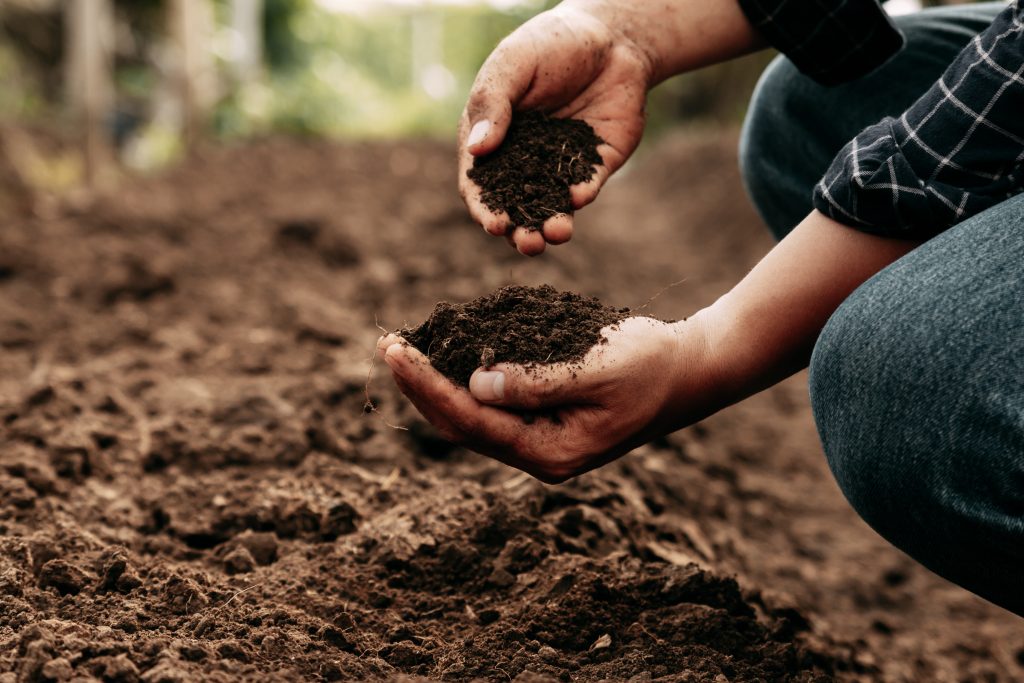
Creating more sustainable gardens doesn’t require drastic changes – small, practical steps can make a significant difference. Here are a few key ways you can make your garden more eco-friendly and reduce its environmental impact:
Compost Your Food Waste
Compost improves soil structure, promotes healthy plant growth, and reduces the need for shop-bought chemical fertilisers that can harm local ecosystems. Items like fruit and vegetable peels, coffee grounds, and eggshells can all be added to your compost pile, creating a continuous cycle of waste reduction and soil enrichment.
Plant Native or Drought-Tolerant Species
Native plants are adapted to your local environment and, as such, they require less water, maintenance, and fertiliser. They are also more likely to attract local wildlife, creating a healthier garden ecosystem.
Create a Wildlife-Friendly Garden
Encouraging biodiversity is another important aspect of sustainable gardening. By creating a wildlife-friendly garden, you can attract beneficial insects, birds, and pollinators like bees and butterflies. Avoid using harmful pesticides, and instead, plant a variety of flowers, herbs, and shrubs that offer shelter and food sources.
Choose Eco-Friendly Garden Furniture
Sustainable gardening extends beyond plants to the products you use in your outdoor space. Opt for eco-friendly garden furniture made from recycled or sustainable materials, such as FSC-certified wood, recycled plastics, or repurposed items. Avoid plastic furniture that will degrade over time, releasing harmful microplastics into the environment.
Sustainable Garden Maintenance Tips
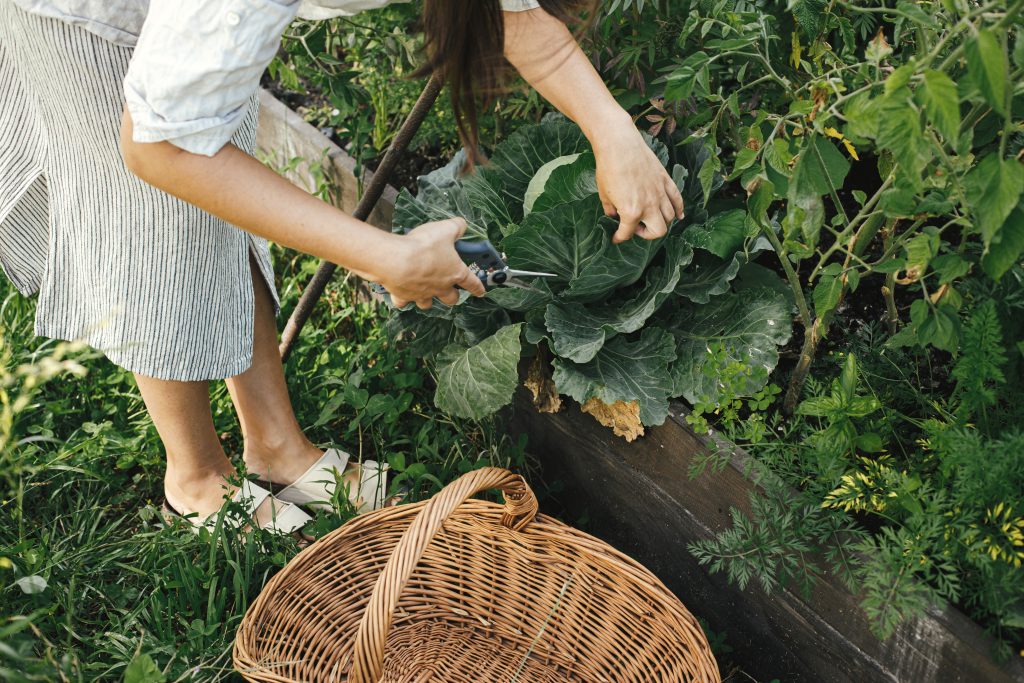
Maintaining a sustainable garden is all about adopting eco-friendly gardening practices that reduce waste and energy use, helping you lower your carbon footprint while keeping your garden thriving.
Reduce the Size of Your Lawn
Lawns require regular watering, fertilising, and mowing, all of which consume resources and increase emissions. By replacing some or all of your lawn with native plants, wildflowers, or drought-tolerant ground cover, you’ll reduce water consumption and mowing frequency, resulting in a lower environmental impact.
Try Natural Pest Control
Instead of using harmful chemical pesticides, encourage beneficial insects like ladybirds and hoverflies, which prey on pests. Planting a variety of flowers and herbs, such as marigolds and dill, attracts these helpful insects.
You can also use companion planting, where certain plants repel pests or improve growth for their neighbours, to naturally maintain garden health.
Choosing Sustainable Garden Products
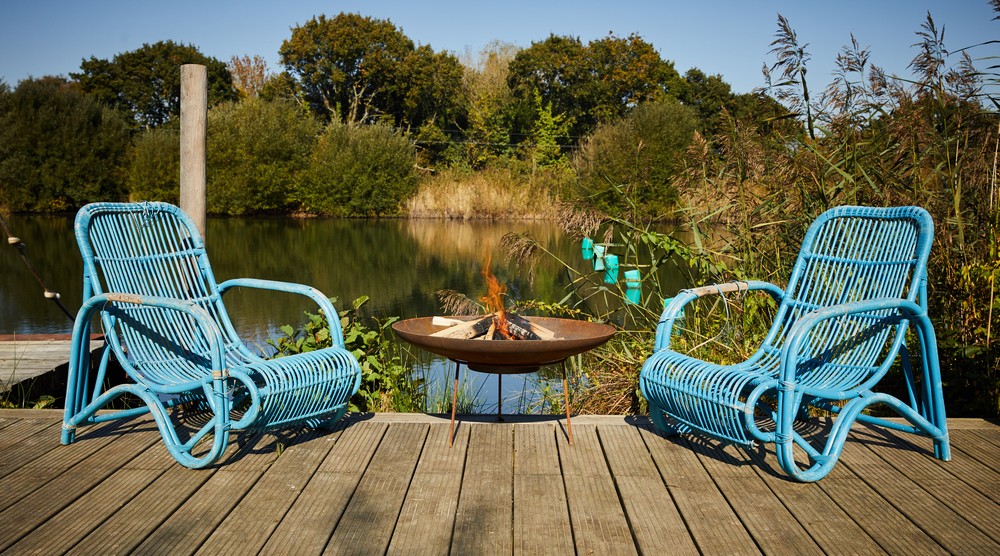
Opting for sustainable garden furniture, pots, and planters made from natural or recycled materials can greatly reduce the environmental impact of your outdoor space. Instead of shop-bought mass-produced items, which are often made from plastic or non-renewable resources, look for alternatives crafted from recycled plastics, sustainably sourced wood, or materials like Corten steel that age beautifully and last for years.
For example, furniture made from FSC-certified wood guarantees that it has been harvested from responsibly managed forests, while recycled materials prevent waste from ending up in landfills. Buying from local artisans or suppliers also ensures that your garden features are crafted with minimal waste and environmental impact.
Reduce Waste and Support Nature Today
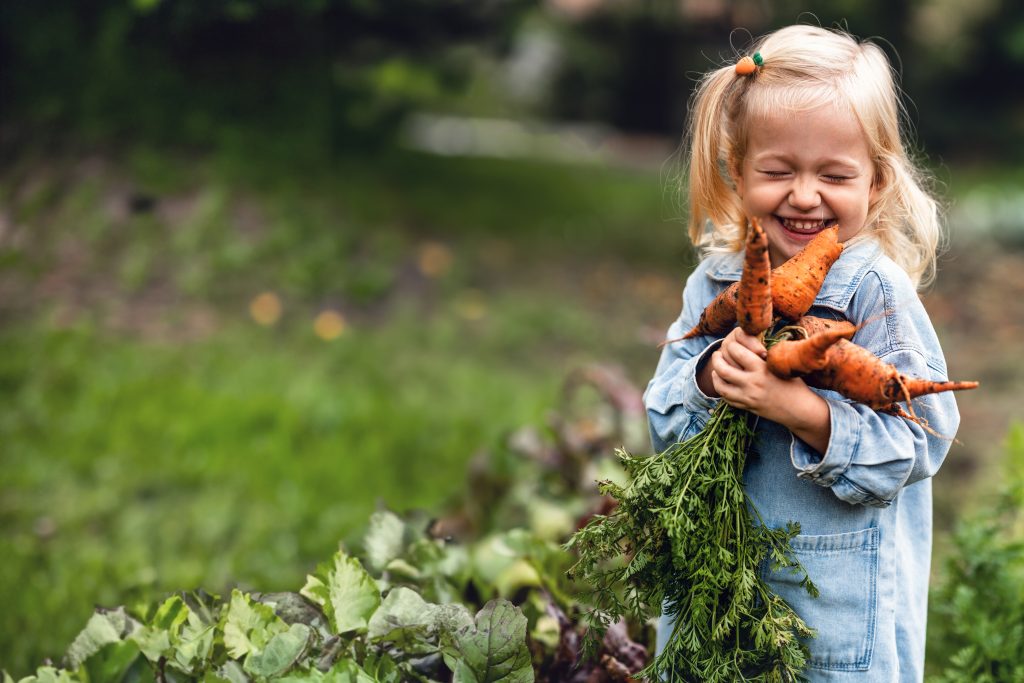
As climate concerns grow, it’s important for all homeowners to embrace sustainable gardening and make their outdoor spaces part of the solution. We offer plenty of eco-friendly options to choose from, so feel free to browse our garden features today. Start small, and watch your garden thrive.
Get a Quote
Looking for advice or have a question? Fill out our quick form below and we'll put you in touch with the right person in our team! We'll get back to you by the end of the next working day.


